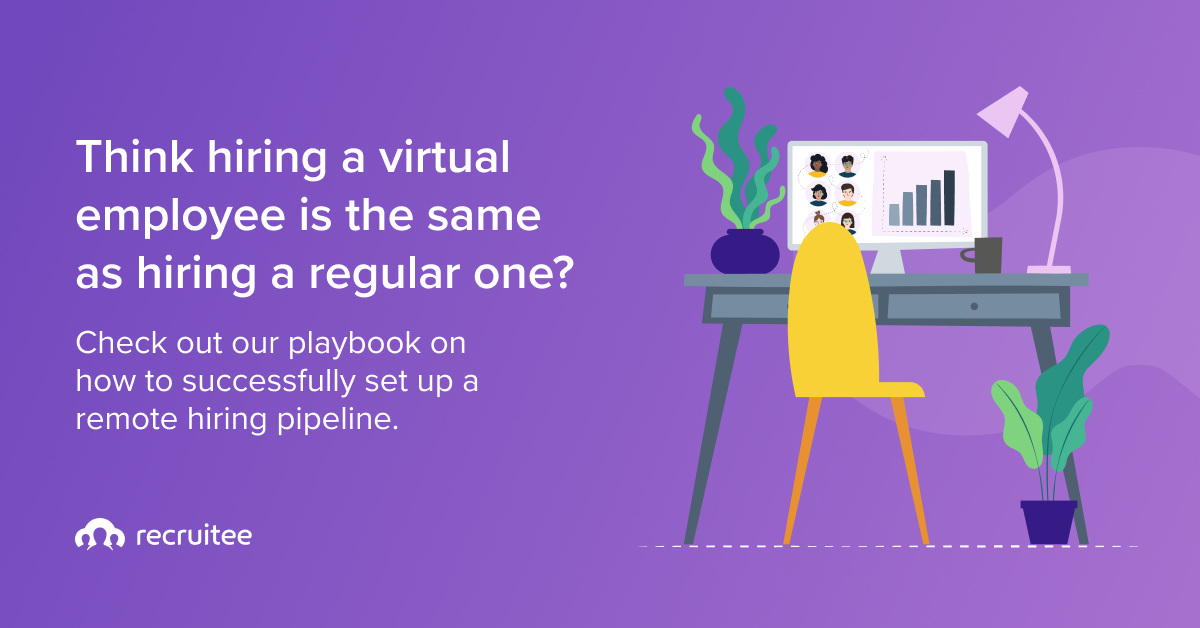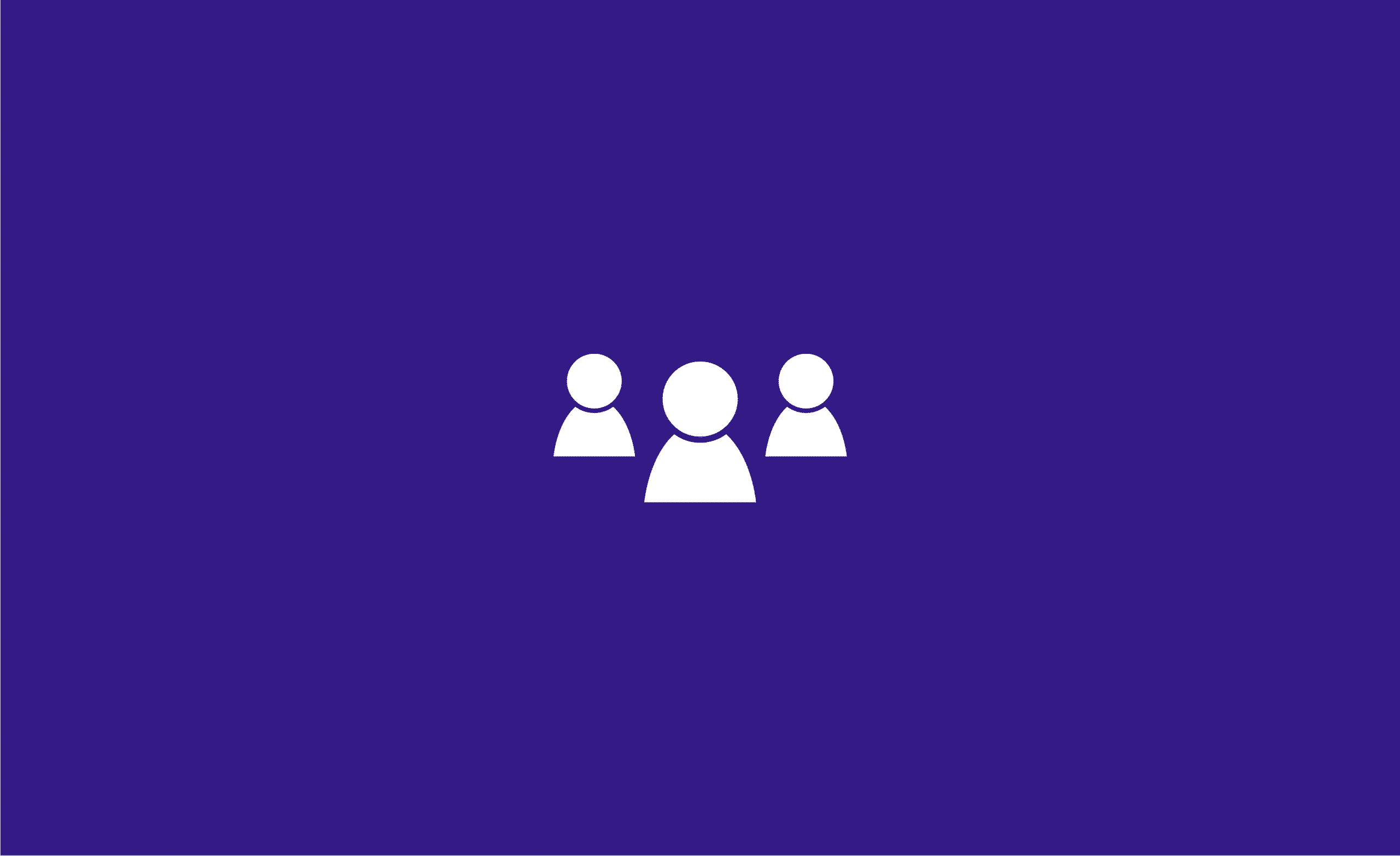Recruitee Radio · TA Innovators Radio x Katya Stepanova: Promoting workplace wellbeing
Many companies are turning their attention to workplace wellness initiatives to increase employee wellbeing. So, from an HR perspective, what can we all be doing to raise the bar for health and wellbeing at work?
In this podcast with Katya Stepanova, Wellbeing advisor, and program manager at Knack, we look at some ways to boost workplace wellness and the benefits it offers employees.
Key takeaways:
- The differences between workplace wellness and wellbeing
- How to measure wellbeing in a remote work setup
- The benefits of wellbeing in the workplace
- Practical ways to promote wellbeing at work
Stepanova also discusses working with a learning and development platform called Quan, which offers wellbeing assessment measuring five dimensions: mind, body, meaning, social connectedness, and self-fulfillment.
Don't forget to check out our playbook on Remote hiring & working!

Other resources you may find useful:
- Increasing employee engagement in the workplace
- How staff engagement affects your bottom line
- 5 habits for crafting the perfect remote workday
Full podcast transcript
Sim Samra (00:01):
Welcome to the Talent Acquisition Innovators Radio, the podcast for talent acquisition aficionados, HR lovers, and recruitment professionals out there looking to get inspired and challenge traditional approaches to hiring. Here, we'll discuss the ins and outs of the recruitment process, engaging fresh talent, managing tough internal hiring dilemmas, and of course, the future of talent acquisition.
I'm your host Sim Samra from Recruitee. I'll be quizzing the experts, asking the burning questions, and of course, bringing you great guests each episode. By the end of every episode, we'll offer a few hypotheticals and, of course, tips to take back to your team and workplace. Welcome. Today, I'm joined by Katya Stepanova. She's the wellbeing advisor program manager at Knack. In this podcast, we'll be talking about workplace wellness. Katya, why don't you tell us a little bit about yourself?
Katya Stepanova (01:01):
Thank you for having me. I'm super excited to be here. I'm a program manager at Knack and a wellbeing advisor there. We started as a consultancy, and we examine companies and the teams they lead, focusing on learning and development programs and team-building activities.
With the pandemic, we realized that more attention is needed on wellbeing. We spent a few months researching the topic thoroughly with the whole team and then settling on a new adventure and creating an online wellbeing platform called Quan. I will share a little more about it today.
Sim Samra (01:50):
What can companies do to encourage workplace wellness goals?
Katya Stepanova (01:55):
First, I would like to talk a little bit about wellness and wellbeing because sometimes these terms are used interchangeably, and they're not quite the same thing. Wellness is included in wellbeing, but wellbeing is a bit broad because wellness could be some health initiatives included at companies, like a healthy breakfast, yoga classes, or paying for employee fitness cards. Wellbeing is a rather new topic, but it has not been embraced in a corporate world in full depth yet, but now is the time.
Katya Stepanova (02:58):
In Quan, we look at wellbeing from five dimensions: body, mind, meaning, self-fulfillment, and social connectedness. We base our framework on tons of research supported by academia. We have organizational psychologists and a team of neuroscientists who support this framework as well.
So coming back to your questions, what can companies do to encourage workplace wellness goals? What I mentioned before, healthy breakfast, marathons, yoga classes, or anything that improves mood could be made around that.
Sim Samra (03:52):
How can companies set their teams up for success when it comes to implementing health and wellbeing programs?
Katya Stepanova (03:59):
First of all, it's awareness of what people need. So not generic solutions like, "let's put a fruit bowl out and hope that it encourages the wellbeing of people." This might work for some people, but not necessarily for others. It's more about having an awareness of what your people need and connecting this with your communication. So it's important to talk about it, understand it, and listen to what your employees need.
Katya Stepanova (04:57):
There also needs to be some consistency to measure the effect because if you do it just once, there might not be that much of an impact.
Also, invite people who can share their knowledge, and have deep expertise in specific topics. So it's all about awareness, communication, consistency, and experts. Because, as I said, generic initiatives might not work.
Sim Samra (05:49):
Do you have any examples of companies that are getting workplace wellbeing right?
Katya Stepanova (05:56):
According to Global Women's Institute's research, only 9% of the global workforce has access to some form of wellbeing program at work. That's not a lot, only 9% worldwide. In Europe, the situation is a little bit better. It's 23% of the European workforce with access to some form of wellbeing program at work. I mean, there could be different reasons. There are healthy work communities in Europe that protect workers' rights, which is great, but it's still only 23%.
Katya Stepanova (07:47):
Some companies choose to have no-meetings Wednesdays as part of their work ethic. I think it's fantastic because you agree that Wednesdays are for getting things done and not interrupting each other with meetings. Another would be to not pick up emails after 6:00 PM, for example. Some companies have "quiet hours" where there are no telephone calls between 9:00 till 12:00. These are some of my favorite initiatives.
Katya Stepanova (09:00):
Salesforce and Timberland pay for volunteering days. So you can choose which organization you want to join as a volunteer. These sorts of initiatives can bring a sense of belonging and contribution to the world and boost wellbeing.
Sim Samra (10:04):
I do like this idea of a no-meetings Wednesday. I think it's hard for people to know when to shut off, and maybe having your employer check-in on you on that Wednesday instead of your typical meetings is a better use of time, especially in the situation we all find ourselves in now.
I recently spoke to a recruiter who implemented a day where no employee was allowed to mention the words 'coronavirus' or 'COVID-19' or any other words that had negative associations that could potentially bring people down. I thought that was a pretty good way of just focusing on people's wellbeing, and I thought it was smart in a way because all of our conversations seem to be heading in that direction anyway. We should be encouraging more initiatives that encourage positive habits.
Katya Stepanova (11:14):
The example that you gave reminds me of another client of ours. They introduced an initiative to develop a framework with certain questions to share their stories of how they went through the Coronavirus lockdown. They would create time and space for a team to share their stories because it was challenging for everyone.
Sim Samra (12:15):
Well, I think you just answered my next question. But what work activities can help improve employee wellbeing? Do you have anything else you'd like to add?
Katya Stepanova (12:25):
I would say taking breaks and being disciplined about it. If you can leave your workplace or apartment, then go for a walk because that gives you a mental break and helps you switch off and cool down a little bit.
Katya Stepanova (13:11):
Also, take a moment for yourself and breathe. Because most of us don't have our typical offices, we have to create habits for ourselves. We need to pay a little bit more attention to ourselves and be conscious of our work routines.
Sim Samra (14:05):
If this year has taught us anything, it's to slow down and make sure that we do take breaks as part of our routine. Moving on to the next question, I just wanted to find out from you how you think companies can make sure they're running their wellness programs as effectively as possible?
Katya Stepanova (14:27):
One of our clients introduced a healthy week initiative to do a healthy activity every day, like cooking breakfast together, doing yoga together, etc. You might want to understand your people's context and what they like and offer something that serves them.
Sim Samra (15:37):
Do you think there's a way employees can be more active in monitoring the staff's wellbeing?
Katya Stepanova (15:45):
You mentioned regular check-ins or 'how you are doing?' surveys. If anyone is interested, they can approach Quan, and we have a fantastic survey on how to monitor an employee or a team's wellbeing.
I would say that reading body language is also something that we might want to start paying more attention to because we can see each other online. It is possible to read if a person's feeling okay, sad or happy.
Sim Samra (19:03):
Katya, we're almost out of time. I just wanted to ask you if you had any last words for our listeners on workplace wellbeing.
Katya Stepanova (19:14):
Just take breaks, protect your routines, and we'll get through it. It will be okay, and talk about it.
Sim Samra (19:32):
Katya, thank you so much. Thanks again for joining us on the Talent Acquisition Innovators Radio. We hope you enjoyed the episode. Of course, if you did, feel free to share it on LinkedIn, Facebook, Twitter, or wherever you're most active. If you'd like to be updated on when our next podcast is going to be released, you can sign up at blog.recruitee.com/podcast. See you in the next one.






